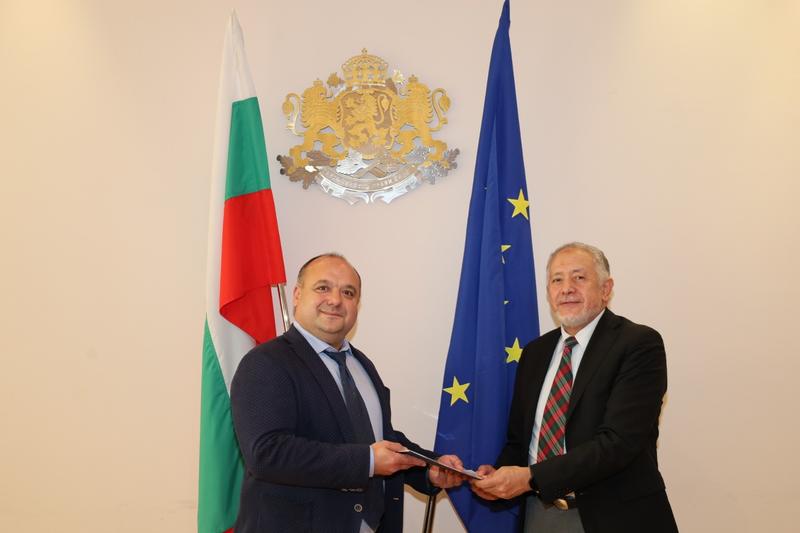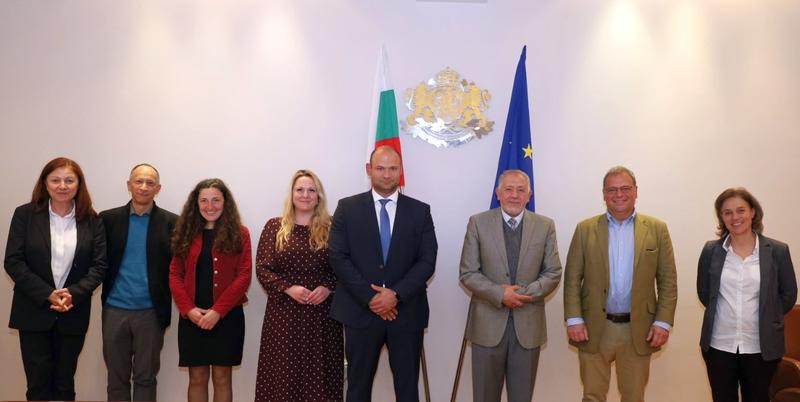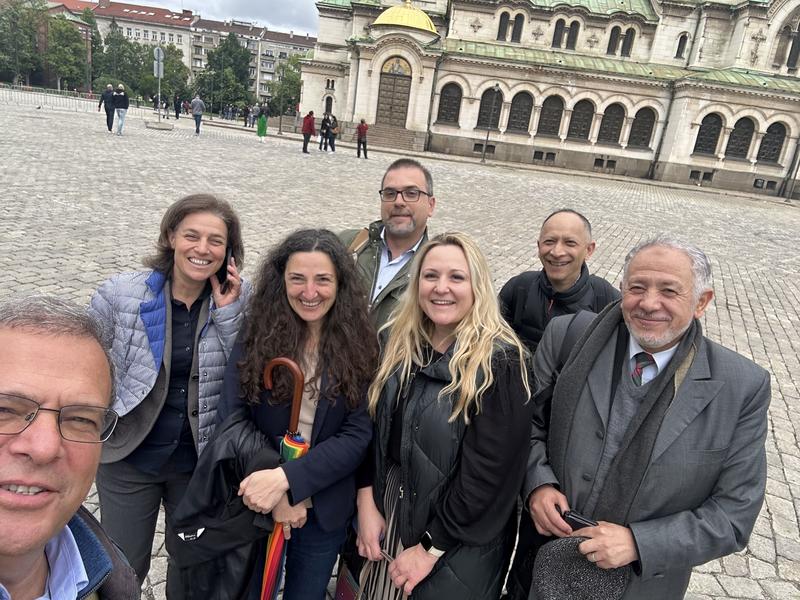Bulgaria signed the agreement for Sofia to host the plenary session of the Intergovernmental Panel on Climate Change in July
14 May, 2024 | 12:01On behalf of the government of the Republic of Bulgaria, the Minister of Environment and Water Petar Dimitrov signed an agreement with the World Meteorological Organization to host the 61st Session of the Intergovernmental Panel on Climate Change (IPCC), which is planned to take place in Sofia between 26 July and 2 August.
In this relation, the visit of the IPCC Secretary Dr. Abdalah Mokssit to Sofia was organized on May 9 and 10, during which organizational meetings were held, as well as meetings with Bulgarian scientists, including representatives of the National Institute of Meteorology and Hydrology (NIMH) and the Bulgarian Academy of Sciences (BAS). It is expected that the scientific community will become more engaged with the work of the IPCC, including by nominating authors who have expertise and publications on topics that could feature in upcoming IPCC reports.
In the meeting between Abdalah Mokssit and the President of the BAS acad. Julian Revalski, Julian Popov also participated and discussed the possibilities for organizing a scientific conference to further stimulate the debate on climate topics at national and even regional level, as well as the potential for cooperation with higher education institutions with which the BAS has traditionally partnered. The programme of the visit included a meeting with the Faculty of Economics of Sofia University “St. Kliment Ohridski”, which is already part of the preparations for the IPCC Plenary Session in Bulgaria.
The IPCC Plenary Session in Sofia is expected to gather around 600 delegates from 195 countries. At the forum, the IPCC will discuss and approve the outline guidelines for the structure and content of two important special reports that have been decided to be composed. The first is a Report on Climate Change and Cities and the second is a Report on Short-Term Climate Factors.
The 61st Session of the IPCC in Sofia will lay the strategic foundation for the Seventh Assessment Cycle, in which scientists from around the world will produce assessments and analyses of the current state of the climate and the specific actions needed to limit emissions and adapt to adverse impacts. This cycle of work is expected to be completed in 2029.
For Bulgaria, it will be important to secure input from our scientists and researchers, as well as the applied use of the results of the IPCC model studies. These results and their interpretation by Bulgarian scientists and experts will be important for updating climate change policies and measures.
The MOEW is in the process of preparing additional communication activities during the session’s period, covering different stakeholder groups and focusing on key climate topics and more specific aspects of the work of the IPCC and the UN Framework Convention on Climate Change.
For Bulgaria and the global community, the work of the IPCC not only provides an opportunity to share the most up-to-date scientific findings and conclusions on climate change, but underlines the commitment of countries to a sustainable future for the planet. The upcoming IPCC session in Sofia is an important opportunity for Bulgaria to strengthen its contribution and commitment to climate change, as well as to develop its scientific capacity in this area and to engage more actively with different stakeholders.
The International Panel on Climate Change (IPCC) was founded in 1988 by the United Nations Environment Programme (UNEP) and the World Meteorological Organization (WMO). The IPCC provides regular scientific assessments on climate change, impacts and future risks, adaptation and mitigation options. The Panel's main objectives are focused on producing detailed reports and proposals that provide countries with a scientific understanding of climate change and provide governments at all levels with scientific information that they can use to develop climate-related policies.
The IPCC is an organisation comprising governments that are members of the UN or the WMO. At present, the IPCC has 195 member countries, with thousands of people from around the world contributing to its work.
Since its inception in 1988, the IPCC has completed six assessment cycles and produced six assessment reports, the most comprehensive scientific reports on climate change worldwide. It has also produced a number of methodological reports, special reports, and technical papers.






